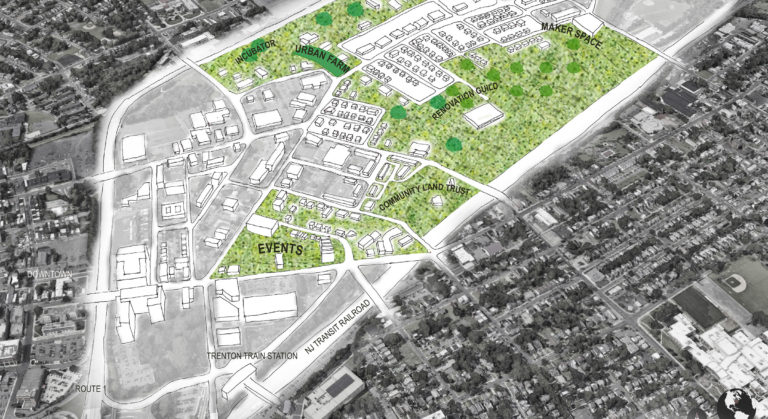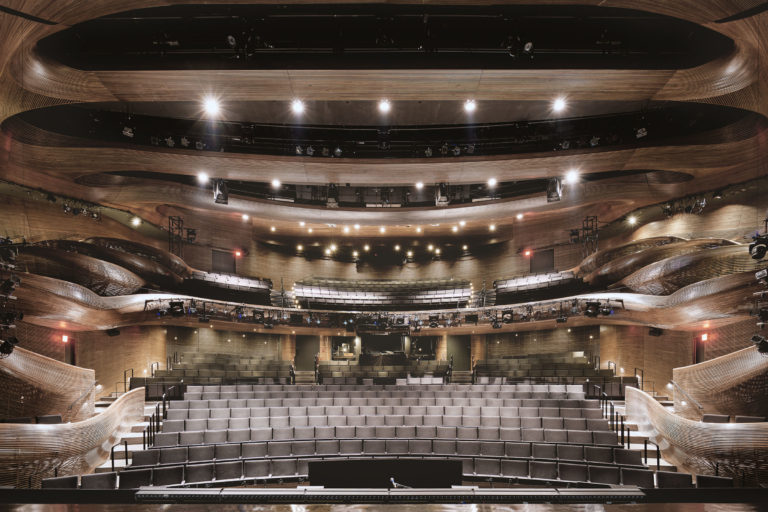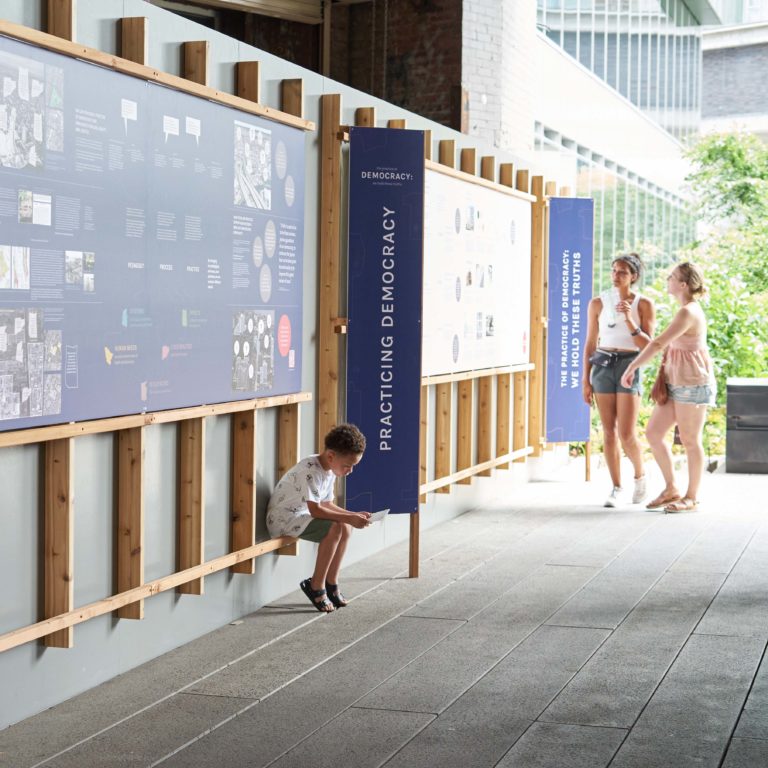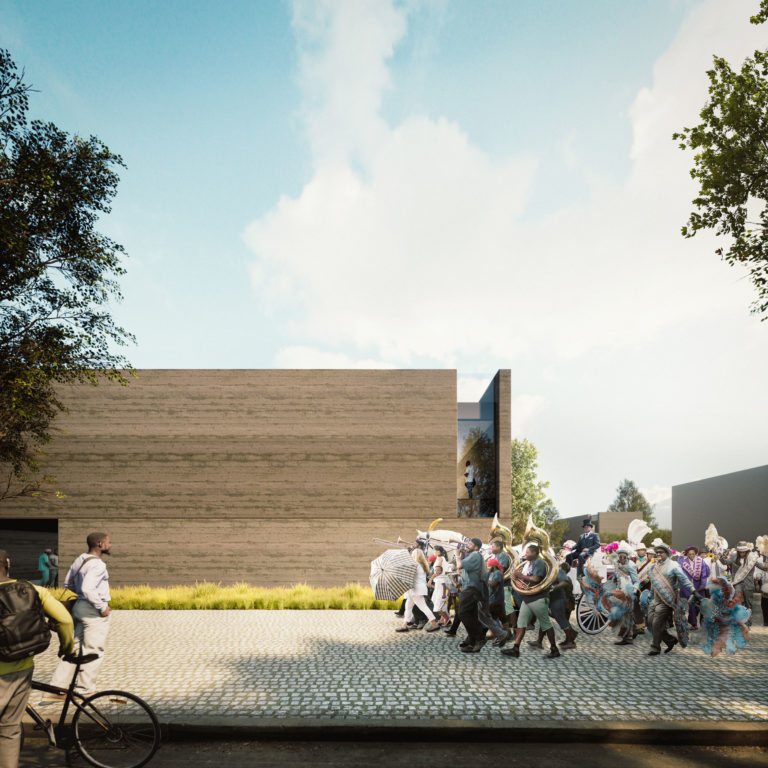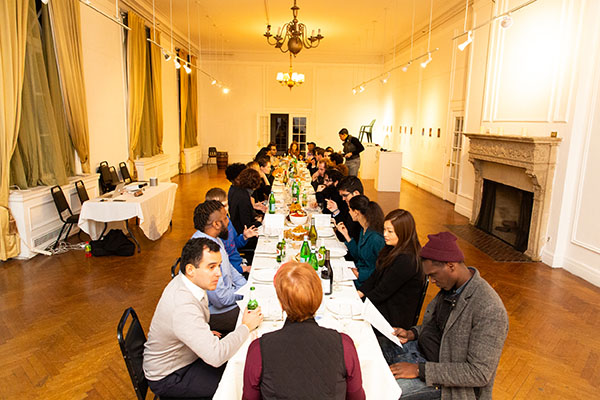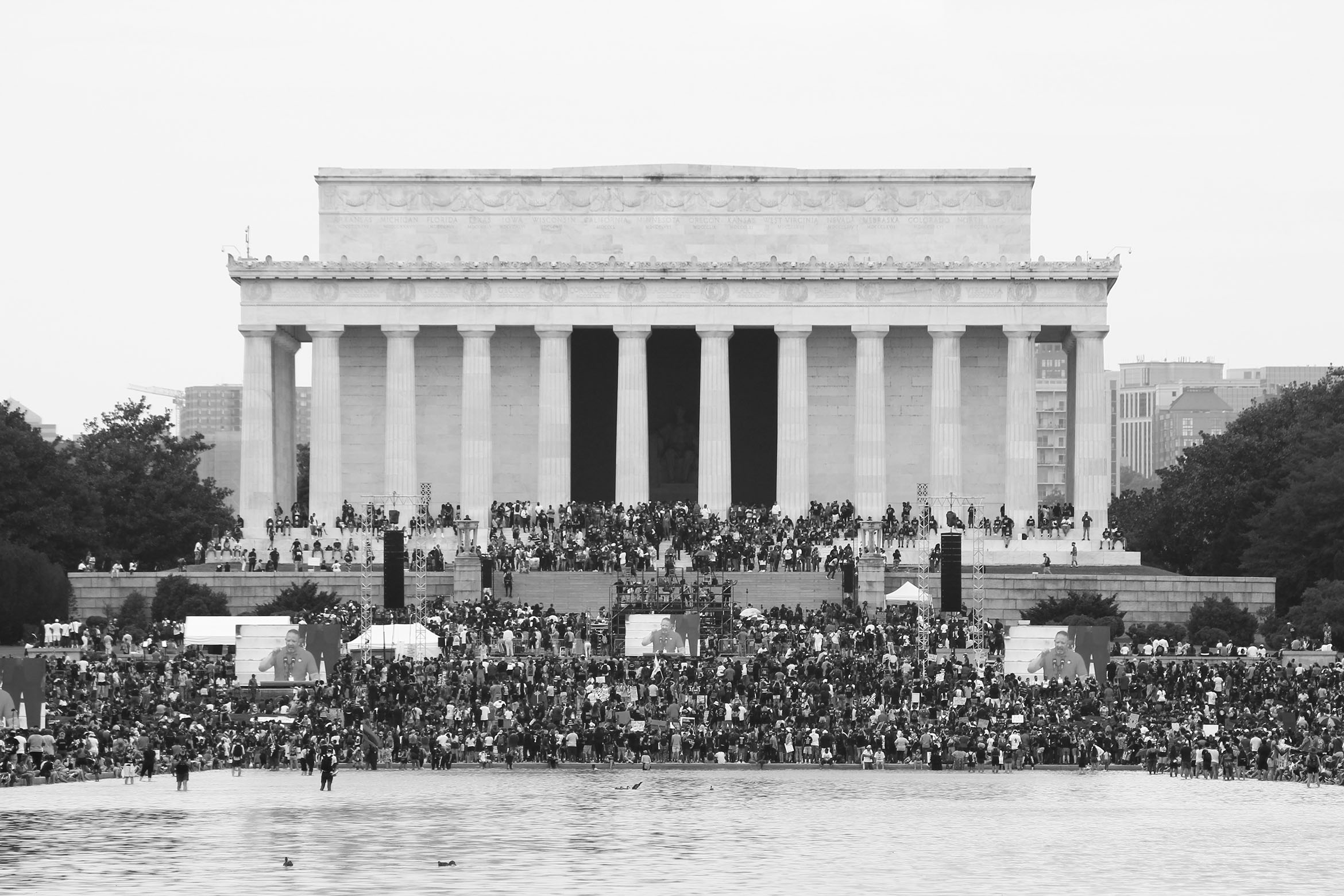
Designing For Democracy (DFD) is a nonprofit research and design agency that expands the practice of architecture from a material focus on buildings to a humanitarian focus on the equitable, compassionate, and just stewardship of our surroundings.
Legacies of de facto segregation, environmental degradation, and unequal distribution of wealth and resources continue to shape our built environment. Through a rigorous research and engagement process, DFD reveals original narratives to inform, transform, and heal our communities and restore their ties to the land.
Founded in 2021 by Trahan Architects, DFD offers professional services in design, research, engagement, education, and consulting. Since its inception, DFD has facilitated exhibitions, seminars, and lectures promoting cultural diversity and equity in architecture. With each project, Designing For Democracy seeks to:
- Document the historical connections between people, nature, and the built environment. By uncovering authentic narratives, we create a common understanding of how political and social systems shape our environments.
- Design unique processes tailored to each project by engaging diverse stakeholders and acknowledging that our perspectives of each other can create lived realities.
- Develop frameworks and tools to enable transformational change, create opportunities, and measure impact.
As a growing consortium of interdisciplinary practitioners, Designing For Democracy is dedicated to challenging theformal language, expression, and procedures of design traditions that reflect inequity, bias, and exclusion.
For media and general inquiries please email info@designingfordemocracy.org.
FOR MORE INFORMATION
For media, donation, and general inquiries, please email us at:
